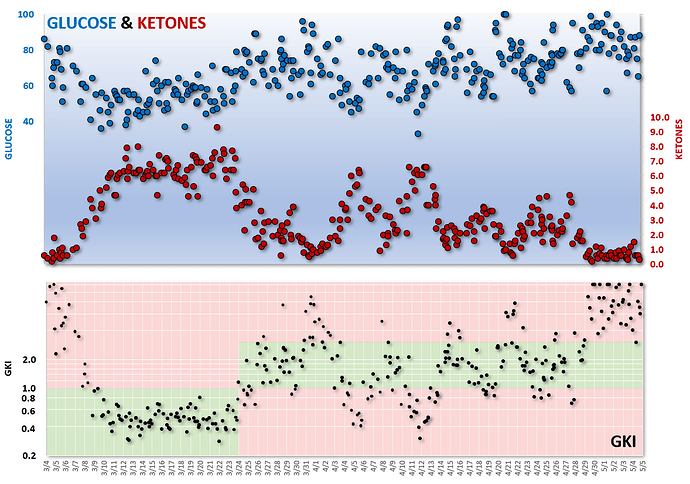Background: Intermittent fast, window is from 6:00 AM to 1:00 PM
Ketones typically between 2.5 and 4.5 mmol/L
Glucose typically between 72 and 90 mg/dl
Tonight I had a fairly intense workout (an hour of mtn biking on some aggressive trails)
got home and tested (about an hour after the workout) and my ketones were at 6.9 and glucose was at 72. Thought the high ketones were interesting but not concerned.
Tested again about 2 1/2 hours later (right before bed) and now my ketones are >8 (meter just shows “high”) and glucose has dropped to 57.
Should I be concerned?


